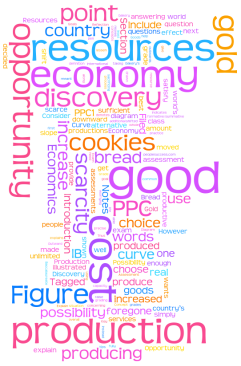Archive for the ‘Notes’ Category
How can demand and supply side policies help people like W. Jorgensen?
A private businessman W. Jorgensen is worried about the decreasing demand of his company’s cars. One of the biggest cost of his company is labor force. Thus, he is seemingly quite happy about the unemployment happening this moment.

Eco-friendly car sales (Picture by Holbrook)
As he wishes, the government can use supply side policy to reduce the payment to unemployed workers so that they are more willing to accept works for less money. This way, more unemployed people may not depend much on unemployment benefits and will be more willing to be employed for lower income. The government can also increase provision of training and better health so that the workers are more efficient in the long term.
In terms of demand-side policies, the government can initiate a project such as “Cash for Clunkers.” These programs encourage people to buy new eco-friendly automotive. Through this program, the government can aid the private car companies such as Jorgensen’s. However, to implement these programs, the government needs to reallocate their expenditures in order to provide money for those who get rid of old, oil-sucking cars.
President’s Dilemma: Fiscal Policy
Posted on: May 8, 2011
How can fiscal policy be used to help unemployed workers (like Joe Brezinski)?
Fiscal policy is a policy using changes in government spending and/or direct taxation to achieve economic objectives, one of which is reducing unemployment. As the council of economic advisors develop an economic policy, we are to employ fiscal policy to help unemployed workers:
1. Reduction of level of taxation
There are various types of taxation that can be altered to achieve economic objectives. However, in helping already-unemployed workers, taxation does not help much. Consider reduction of income tax. Though it is great for those who are employed, it does not help the unemployed workers. The reduction of sales tax, too, aids those with income. Nevertheless, the unemployed workers will not benefit much from this fiscal policy. Clearly, reduction of level of taxation is not a useful policy to adopt for the unemployed workers.
2. Increase of government spending
Government can spend in various areas, such as education, defense, and health. This moment, the percentage of government spending on each area is as shown in Figure 1.

(Figure 1) Total Spending for United States
In order to not increase the national debt much, some money spent in areas such as “defense” and “remainder” sections can be used to help the unemployed workers. As Campaign for Job Security (CJS) suggested, government can spend in training for the individuals that lost their job, so that the unemployed does not become unemployable workers. It may be good to give training/education to the unemployed workers, taking this time period as an advantage, so that they become more efficient in the long term. Government can also temporarily increase the amount of money given to the unemployed workers, helping them lead ordinary lives.
The President’s Dilemma: Statistics
Posted on: May 4, 2011
How can we as the special task force of the council of economic advisors develop an economic policy so that we can ease the economic crisis caused by increase in oil price without increasing the national debt?
In order to answer this question, our group analyzed the statistics given for selected years. We were particularly interested in looking at the national debt, as we were told not to develop a policy that does not require an increase in “already-too-high” national debt: $14 trillion. Upon analyzing the data given, we have noticed that along with increase in nominal national debt, so did the nominal GDP. (Nominal GDP is dollar value of all final goods and services produced by resources in the country in some period of time; it tells the money value of goods and services in different years) Take a look at the graph below:

(Figure 1) Growth of nominal national debt and nominal GDP
Clearly, the nation’s real GDP is increasing in a faster rate than is the national debt. Therefore, the president should not worry about a slight increase in the nominal national debt. It is more important to do something with the economic crisis with some money from the government than to save the money and make the economy fall down even more dramatically.
